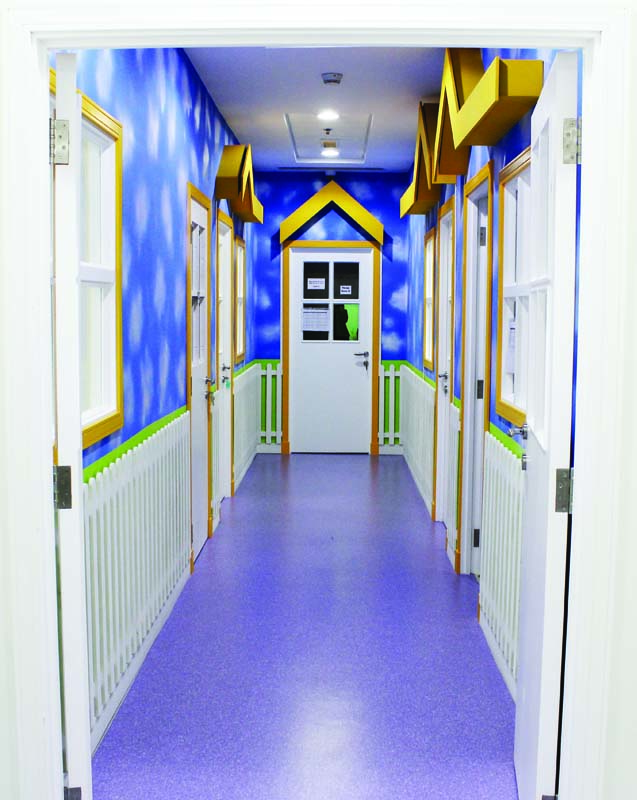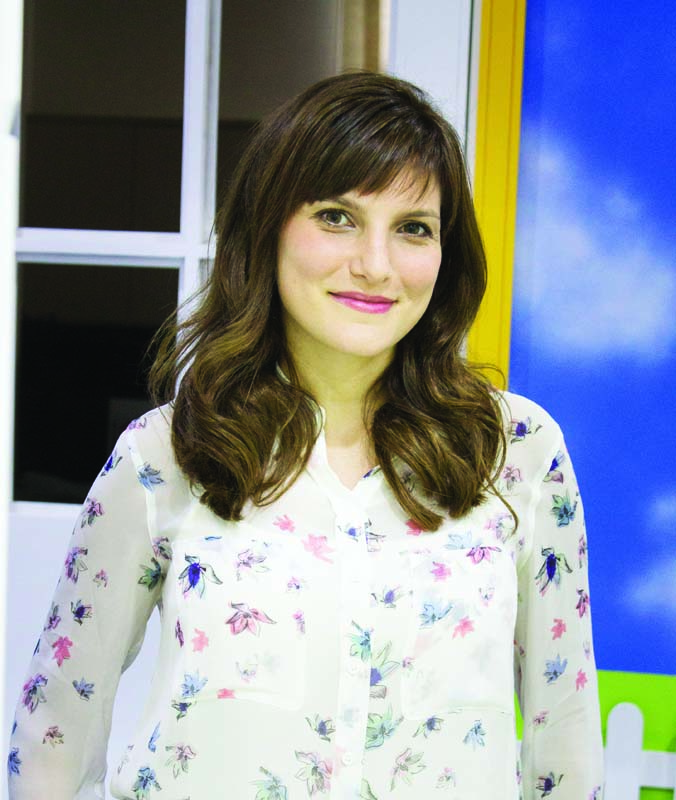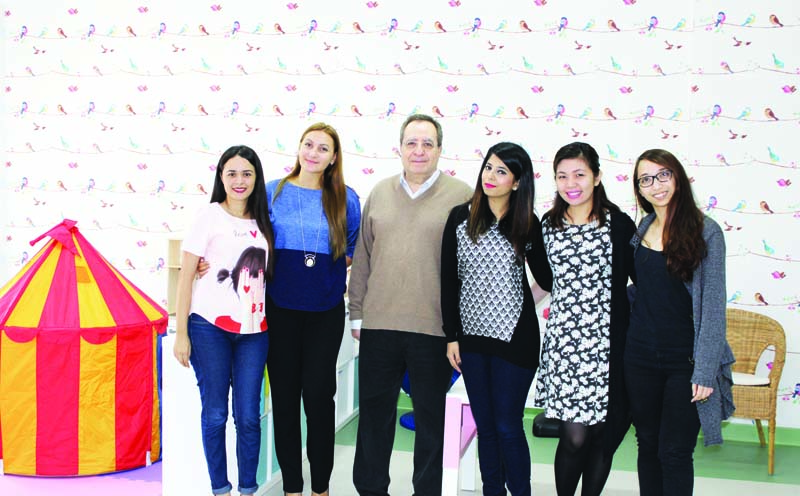
Children diagnosed with Autism Spectrum Disorder (ASD) require specialized care and attention. Stepping Stones is an international organization dedicated to providing evidence-based treatment methods that address behavioral, social, speech-language, educational and occupational areas of needs for such individuals diagnosed with ASD and related disorders. Such treatments methods begin with a full comprehensive assessment and evaluation for the individual.
Following a three step process from consultation to diagnosis, and finally treatment, Stepping Stones works to overcome the limitation imposed by ASD, emphasizing the need to help such individuals acquire age-appropriate developmental milestones that are achievable and sustainable.
First Avenue spoke to Stepping Stones clinical management about ASD, specific objectives, and the availability of required care and services within the UAE.

1: Could you please introduce us to Stepping Stones?
Stepping Stones Center is a treatment center, dedicated to improving the lives of those affected by Autism Spectrum Disorders (ASD) and other learning and development disorders. This is done through assessment and evaluation along with applying evidence-based treatment methods for each individual that is individualized in orer to meet their developmental areas of needs. Early diagnosis and early intervention is key. We offer early screening for Autism Spectrum Disorder, complete developmental and psychological assessments, vocational and school inclusion programs, school and academic support, as well as therapy interventions based upon principles of Applied Behavior Analysis, Speech and Language Therapy and Occupational Therapy.

2: What is the main area of focus when providing care and education for individuals with such disorders?
ASD is a developmental disorder which becomes evident within the first 3 years of life. It affects the brain’s normal development of social and communication skills, which affects a child’s ability to interact, communicate, relate, play, imagine, and learn. In some children, self-stimulatory and repetitive behaviors are observed, as well. Since delayed language and impairments in social communication as well as behavioral problems are key features in ASD and are often interconnected, it is fundamental that early intervention focus on reducing problem behaviors, and increasing verbal expression and social communication.

3: What is the role of the caregiver and the therapist in such therapies? How important is the involvement of the family of the patient?
Parents and caregivers have a fundamental role within their child’s therapy program and continued progress. It is crucial that parents be part of the full assessment and goal setting process so that they can see their own family needs and goals, as it relates to their child’s development, worked on and achieved by the therapy team. It is also important for parents and other family members to work collaboratively on the child’s goals by carrying over key components of therapy within the home. For example, behavioral techniques, specific speech development strategies, or physical activities, which require consistent practice, even outside of the child’s individual therapy sessions should be practiced at home.

4: Do you think that times have changed and we are more aware of the developmental disorders?
1 in 68 children (1 in 42 boys) are now diagnosed with ASD. Fortunately, awareness and availability of supportive service have been increasing in recent years, and children and their families are being given earlier access to these fundamental services. There are many centers presently in the UAE who offer early intervention services; however, there is still a great need for more within the GCC due to the increasing numbers of individuals affected by this disorder. Furthermore, support services for students who are of secondary school age, as well as young adults, are still in early stages of development within the UAE, with few centers providing such services.
5: Are your efforts aiming to offer a normal life to your patients with the help of these therapies?
Our aim is to maximize each child’s potential and individual abilities, while providing the support each child needs in order to acquire new skills. Each child has a different or unique set of skills and difficulties which will affect his or her development in different ways. Our focus is on establishing realistic, achievable and measurable outcomes so that the child can reach his or her potential, whether it be within academic skills, social interactions, and/or community living.
6: Do you think that there is a need for more clinics and institutions in the Middle East to provide such services and expertise to the people?
There is still a substantial need in the GCC region for expansion of centers and provision of such services whereby such centers can provide early diagnosis and early intervention services, as well as supportive services for young adults and older adults.
7: Do you have expansion plans in the region?
We have established a few franchises within the Middle East: one in Kuwait and another in the Eastern Province of the Kingdom of Saudi Arabia (in Al Khobar). These centers provide assessment and diagnostic testing, as well as Applied Behavior Analysis, Speech Therapy, Occupational Therapy, parent training, and ongoing case supervision and consultation services.
8: Some words of advice for our readers who are facing these challenges?
Early identification and early intervention are key factors in ensuring the best progress and outcomes for a child who has developmental delays, speech delays, and/or Autism Spectrum Disorder. It is fundamental that the child be evaluated by a team of qualified professionals, and that the child receive a therapy plan which addresses his or her needs in all areas of development, to include safety and independence skills, communication and social skills, and pre-learning and school readiness skills. Concerned parents can access support and services by booking an initial consultation with a qualified and specialized center and then identifying along with the clinical team, what is the best step to take for their child’s development.






